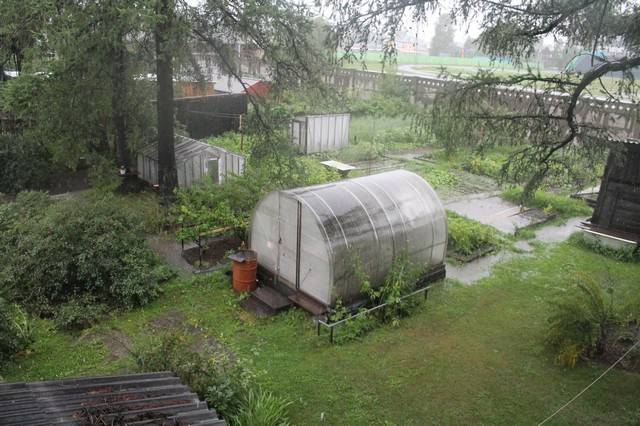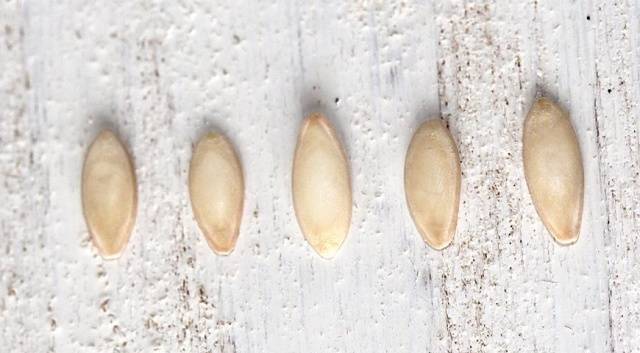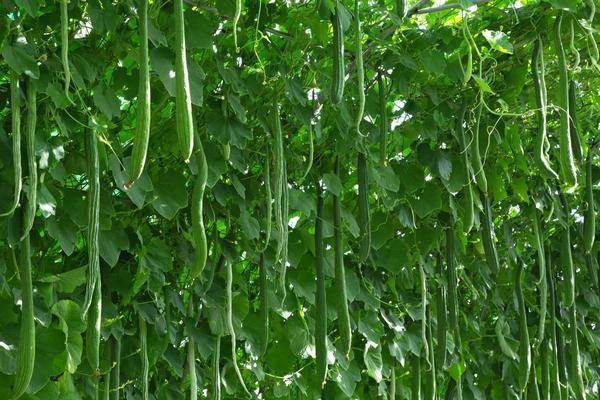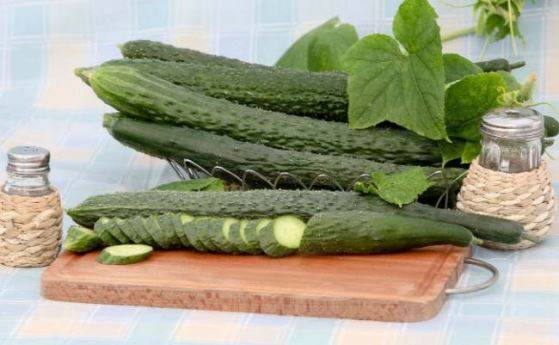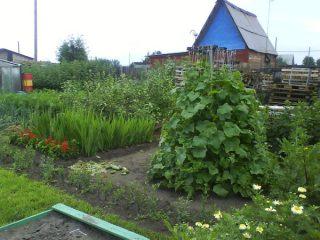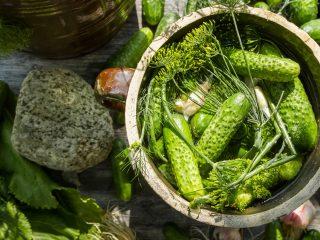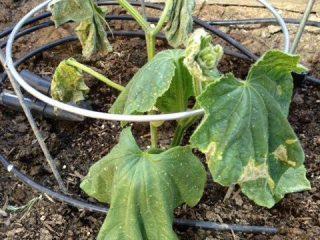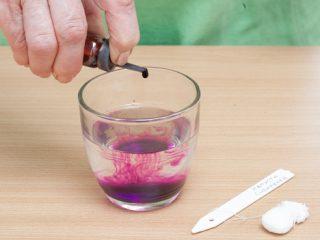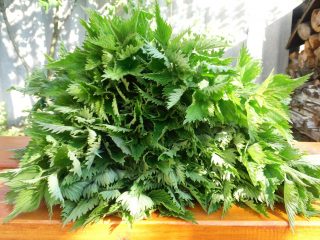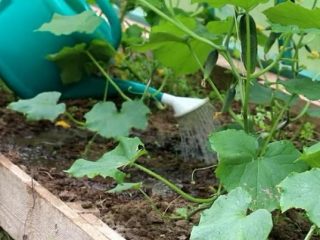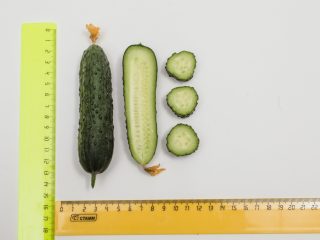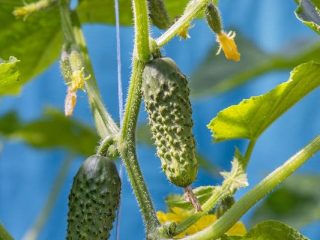Content
Few people know that we deliberately eat cucumbers unripe, except gardeners - they are well aware of this issue. The greener the cucumber fruit, the tastier it is. Cucumber is a special vegetable. The love for it in Russia is great, since only in our country are popular both fresh salads and all kinds of pickles and marinades. Let's talk about long-fruited cucumbers, often found both in stores and in garden beds.
Growing cucumbers in a greenhouse
Every year, greenhouses are becoming more and more popular in our country. Their spread is due to weather instability in many regions. If in the spring it can be quite hot, then in the summer during the period of flowering and ovary formation, heavy rains and some cooling are quite possible. How familiar this is to many! At this moment you won’t find any bees for pollination, which can affect the quality and quantity of the harvest. That is why greenhouses are increasingly appearing on plots of dachas, houses and just outside the city.
All greenhouses can be divided into two types:
- heated, where the harvest is obtained all year round;
- unheated for planting seedlings in the warm season.
Modern greenhouses are covered with various materials:
- polycarbonate;
- glass;
- special greenhouse film.
Near With a source of irrigation water is placed there.Why not use a greenhouse for cucumbers? They are quite unpretentious, requiring high-quality watering and warmth. The homeland of the cucumber is India, and conditions such as in this warm country are easiest to create in a greenhouse.
Selecting seeds for greenhouses
In order to choose a variety for growing cucumber in a greenhouse, you need to know some nuances. Just looking at the colorful packaging, it is very difficult to make a choice. Before going to the store, it is important to study the following questions:
- pollination of cucumbers;
- what the variety is intended for;
- fruiting dates;
- variety yield.
This is the minimum amount of knowledge. First of all, remember that all varieties of cucumber are divided into two types:
- varietal;
- hybrid.
When buying a hybrid, do not try to grow new offspring from its seeds; you will waste your time. This is only possible when purchasing and growing varietal cucumbers; their characteristics can be inherited. In addition, you will need to take into account some nuances.
Features of choice
When going to the store to buy long cucumber seeds, remember that when growing in a greenhouse difficulties will arise with insect-pollinated species. Bees are reluctant to fly into greenhouses, so many gardeners prefer self-pollinating species
On the packaging, in the “Type of pollination” column, either self-pollinating or parthenocarpic will be indicated.
As for taste characteristics, everyone should be guided by their own taste. Please note that not every variety is intended for pickling and preservation. Additionally, you will have to decide which variety is preferable from those proposed:
- early;
- mid-season;
- late.
Today, ultra-early varieties are very common. Please note that they produce crops in a short period and do not bear fruit for a long time.Mid-ripening and late-ripening cucumbers can delight the gardener with fresh fruits for quite a long time.
As a rule, not one variety of cucumbers is grown in a greenhouse at the same time, but several. Small gherkin cucumbers are combined with long-fruited ones. There is no special care for different varieties; at the same time, the gardener can conduct an experiment with a certain variety, try how it behaves in the beds. This is how the most preferred varieties for growing in greenhouses are selected. Here is a list of long-fruited varieties that are best suited for protected soil.
Varieties of long-fruited cucumbers
Long-fruited cucumbers not quite familiar to our table, but over time we got used to them and appreciated their taste. Most often, they are more watery, do not have bitterness and are excellent when consumed fresh. Preserving them is quite difficult due to their large size. Long-fruited varieties include those from the seeds of which a cucumber with a length of 16 to 25 centimeters is obtained. There are real giants in this line.
We included only the most popular varieties of cucumbers in the comparative table:
- hybrid "Zozulya";
- variety "Chinese miracle";
- variety "Phoenix 640";
- hybrid "Regal";
- hybrid "April";
- hybrid "Relay";
- hybrid “Chinese heat-resistant”;
- hybrid "Stella";
- hybrid "Mustafa";
- variety "Manul".
Name of variety/hybrid | Pollination type | Purpose | Productivity and fruiting period | Note |
|---|---|---|---|---|
Zozulya | parthenocarpic | fresh, for pickling and preservation | up to 16 kilograms per square meter. meters, fruiting in 45 days | The average length of greens is 17-18 centimeters, weight up to 200 grams |
Chinese miracle | bee-pollinated | fresh, for pickling and preservation | high yield, fruiting occurs in 50-55 days | The length of the greens is 45 centimeters; when grown in a greenhouse, the plant will need to be artificially pollinated |
Phoenix | bee-pollinated | fresh, for pickling and preservation | The yield is average, no more than 3.7 kilograms per square meter. meters, fruiting occurs in 55-65 days | The length of the greens is 16-18 centimeters; when grown in a greenhouse, the plant will need to be artificially pollinated |
Regal | parthenocarpic | fresh, for pickling and preservation | the yield is high - 16 kilograms per square meter. meter, early harvest (fruiting in 40-45 days) | the length of the greens is 16-18 centimeters, weight - no more than 120 grams |
April | parthenocarpic | fresh, for pickling and preservation | high yield, up to 24 kilograms per 1 sq. meter, fruiting no later than 50 days | The length of the greens is 15-25 centimeters and weighs 200-250 grams |
Relay race | bee-pollinated | fresh, for pickling and preservation | high yield - 25-35 kilograms per square meter. meter, fruiting on days 53-69 | The length of the greens is on average 21 centimeters; when grown in a greenhouse, the plant will need to be artificially pollinated |
Chinese heat resistant | parthenocarpic | fresh and in salads | High yield, fruiting occurs on the 54th day | The length of the greens is 30-50 centimeters, these are real giants |
Stella | parthenocarpic | fresh, for pickling and preservation | high yield - from 1 sq. m you can collect 11.5 kilograms, fruiting occurs after 56-65 days | The length of the greens is 20-25 centimeters with a fruit weight of 150-270 grams |
Mustafa | parthenocarpic | fresh, for pickling and preservation | average yield (3.5 kilograms per square meter), fruiting in 40-45 days | the length of the greens is 18-20 centimeters and weighs up to 200 grams |
Manul | bee-pollinated | fresh, for pickling and preservation | the yield is very high, up to 37 kilograms per square meter. meter, fruiting no later than 58 days | the length of the greens is 18-22 centimeters, weight up to 220 grams; When grown in a greenhouse, you will need to artificially pollinate the plant |
The video provides a brief description of the “Green Jade” variety. He is also Chinese.
Unfortunately, most varieties called “Chinese” are bee-pollinated species. This means that when growing them in a greenhouse, you will have to resort to artificial pollination. This task is not so much difficult as it is lengthy.
Features of growing long-fruited cucumbers
Long cucumbers are especially popular among our gardeners. They produce a plentiful harvest, and the taste suits most. Whatever variety is ultimately chosen, you need to try to adhere to some rules when growing cucumbers:
- Often the germination of seeds of long-fruited cucumbers occurs very unevenly, so it is recommended to germinate them before placing them in soil or a glass;
- Not every variety of long-fruited cucumbers stores well, so you should carefully study the packaging and give preference only to trusted manufacturers;
- when the plants become tall, they need to create conditions for the growth and ripening of fruits: they must be suspended on trellises.
Conclusion
Long-fruited cucumbers are very convenient to grow in a greenhouse.They are quite unpretentious and can decorate any feast. Many housewives advise not to pickle particularly long cucumbers whole, but to use them to prepare complex salads for the winter. But both standard long-fruited and giant ones are suitable for pickling. Grow them yourself!
